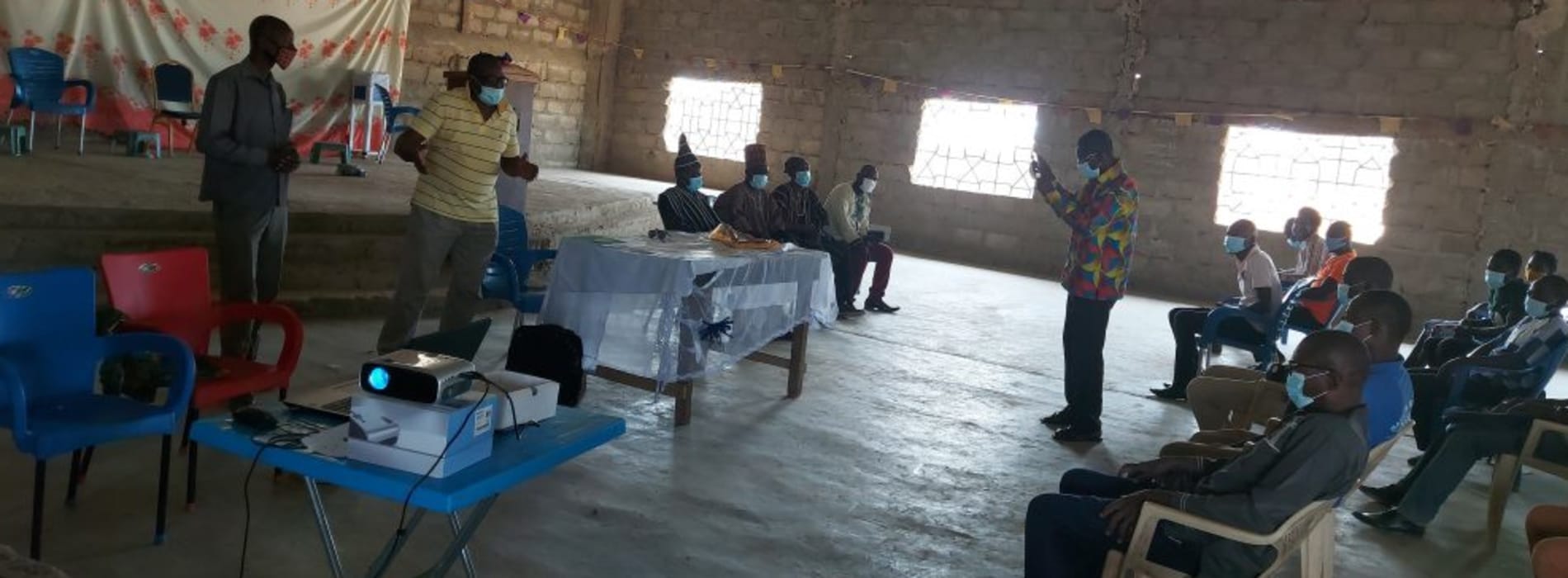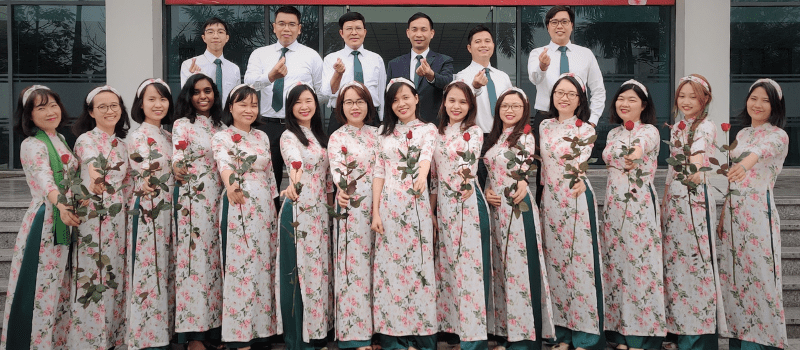A national VETS volunteer, Ebenezer Ghamli, shares his experience teaching rural communities in Ghana about COVID-19 safety.
I heard about the VETS volunteer opportunity through a colleague of mine who mentioned that VWB/VSF was looking for national volunteers because COVID-19 had prevented the Canadian volunteers from joining the team in Ghana. He had suggested that my wealth of knowledge working with livestock farmers and training them on recommended technologies on livestock management would make me a great candidate.
Since my engagement as a local volunteer, I have worked with GAPNET in awareness creation and to increase knowledge in COVID-19 in the Eastern and Upper East Regions of Ghana. These activities were carried out in Obodan and in the Eastern Region and Mirigu, Manyoro, Nabango, Nayangnia, Natugnia, Sirigu, Yua, Kandiaga, Konwognia, and Doba in Upper East Region.
The training was relevant because the country came out of the first wave of the disease outbreak and people became less stringent in their COVID-19 prevention practices. This was particularly true in the rural communities where the incidences of the disease was very low. With the global second wave on the rise, the training was very timely. While the virus had never been reported in these communities it was important to raise their awareness level to help avoid possible outbreaks because any public health crisis could be devastating.
The target beneficiaries were poultry and small ruminant farmer groups, the Chiefs, the district assembly members, community nurses and other members of the communities.
Being the lead facilitator, I made sure the beneficiaries were organized into small groups of thirty people in spacious places in each of the communities visited, obeying the social distance protocols. They were all supplied with nose masks and given sanitizers which they were to apply every thirty minutes. To make the training more interactive questions were asked to know their level of knowledge on COVID-19 and this helped the team to focus on areas where they had issues. The engagement took the form of participatory learning where some of the beneficiaries were asked to demonstrate how they carried out such protocols and the others were observing closely to point out whether the protocols were rightly done or not. The gaps were then filled by the facilitators, for example, a nurse from the community was brought in as a focal person for easy access. This way if they had questions which needed to be answered they could reach out to her when the team was gone. This approach helped the farmers be fully involved in the training, there was full participation as they felt very comfortable and came out with a lot of questions and contributions and were eager to know more and clear their doubts.
At the end of the training, we saw the participants putting into practice what they have been taught, by not shaking hands and using the hand sanitizers as they move out of the training center. It was difficult to keep the masks at the right position on their faces, especially covering the nose all the time, but it was pointed out to them that they only need to be worn when in close contact with others and the masks can be pulled back when away from gatherings.
I am excited to be part of the team on this outreach program as a VETS national volunteer because it has afforded me the opportunity to share with the rural communities my experiences as a long-time development worker, experiences from the urban, peri-urban and other rural communities with different practices. It also helped me learn more about rural areas farmers’ perceptions about people visiting their communities with all sorts of messages packaged and brought to them and their level of participation in such meetings. My placement and exposure to the VETS program with VWB/VSF have impacted me positively because it has opened a new chapter in my career. It has exposed me to other ways to bring development to farming communities, particularly with a gender lens always in mind. This approach has shown me that when we engage all community members, which includes the whole family, there is greater acceptance and uptake of development packages being presented. I am also working together with GAPNET to promote gender equality by training both women and men community animal health workers.
I hope to use my knowledge as an animal health specialist to increase the productivity of every livestock unit in the target communities to increase family incomes. We are also hoping this will have a cascading effect beyond the households trained through the Telehealth module the VETS program will be promoting in the communities. In addition to that my activities should also promote environmental sustainability in the organization and in the communities I will be working in.
What I will like to share about my short experience as a national volunteer is that it is gratifying to share my knowledge with members of the community, that is giving back to society.
- VETS Volunteer Ebenezer Ghamli, Small Ruminants and Poultry Health and Production Specialist





